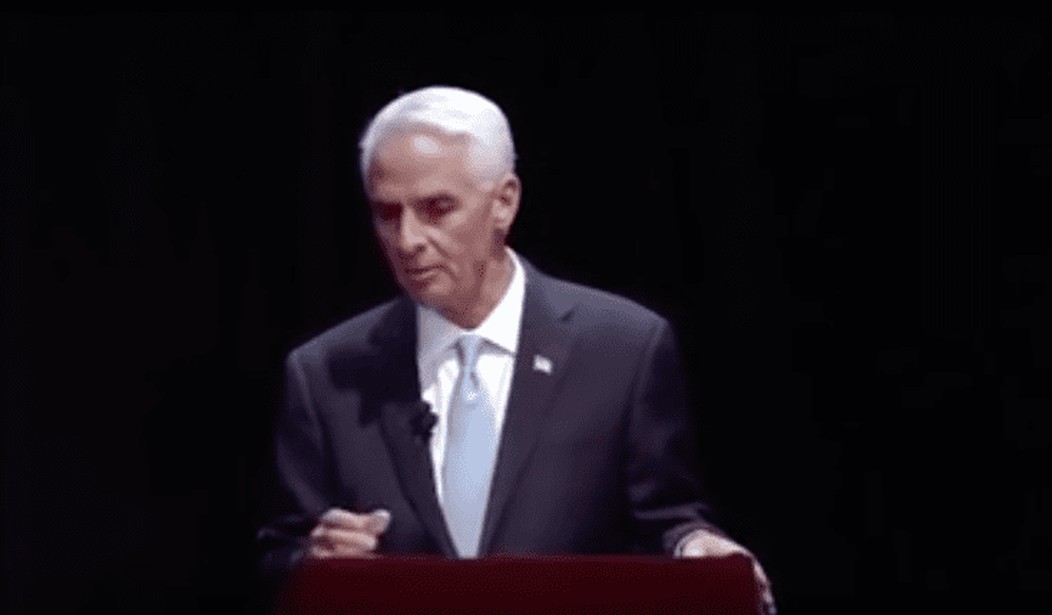North Carolina Rep. George Cleveland wasn’t able to find enough support among his fellow Republicans to get HB 100 out of the House Rules Committee, where unpopular legislation is sent to die.
But bills that wallow for a time in the Rules Committee are sometimes reborn. Cleveland, a 25-year veteran of the U.S. Marine Corps, told PJM he is determined to try again to win approval of the proposal when the North Carolina Legislature reconvenes in January 2017.
HB 100 would actually have been a compliment to Cleveland’s HB 318, which is anti-sanctuary city legislation signed by Gov. Pat McCrory (R) in October 2015. It prohibits North Carolina municipal leaders from deciding they won’t enforce state and federal immigration laws in their communities.
Several North Carolina communities including Asheville, Carrboro, Chapel Hill, Charlotte, Duran and Winston-Salem have all decided not to have their police officers find out if the people they come across are U.S. citizens, or at least have the proper paperwork.
Harry Dolan, the police chief of Raleigh, N.C., told KTAR in 2010 that having his officers checking on citizenship and immigration status would be “more than an unfunded mandate, it would be our leadership in Washington abdicating their responsibility to deal with a very federal issue.”
That attitude is something Gov. McCrory vowed to change in 2015. And he felt so strongly about it that McCrory announced he would sign HB 318 before an audience of Hispanic community leaders.
“We must follow the law and not tie the hands of the men and women behind me,” McCrory said. “We’re going to enforce the law and help our law enforcement officers protect our citizens.”
HB 318 also requires state and local government agencies to use the E-Verify system to make sure job applicants are U.S. citizens, or at the very least have their immigration papers in order and are not illegal aliens.
It stops the use of consular or embassy documents to verify identity and residence, along with limiting food assistance for able-bodied adults without children who are unemployed.
But the law doesn’t have any teeth. There are no penalties for community leaders who ignore the legislation.
It might seem obvious that a correction is needed, but Cleveland’s attempt to put some enforcement power into HB 318 with HB 100 failed as the North Carolina Legislature ended its 2016 session June 29.
Federation for American Immigration Reform (FAIR) Communications Director Dave Ray told PJM that HB 100 would have bolstered North Carolina’s efforts to limit illegal immigration in the state by allowing the state to cut off education and transportation funding to cities that were ignoring HB 318.
“Sanctuary cities all but turn a blind eye to illegal immigration,” Ray said. “If state and local governments and law enforcement can’t be part of the solution, then they are part of the problem.”
Ray said FAIR is following similar legislation in Louisiana and South Carolina that was intended to penalize sanctuary cities and those who ignore immigration laws.
PJM reported in June that, as happened in North Carolina, anti-sanctuary city legislation in those states previously failed.
Suzanna Birdsong, the North Carolina ACLU’s policy counsel, argued that Rep. Cleveland’s legislation and the other efforts failed because trying to make sanctuary cities out to be dangerous for America is a “non-issue.”
Ray said her opinion is worse than wrong. He believes it is dangerous.
“Lack of coordination between state and local law enforcement could have contributed to 9/11,” Ray said. “If there had been a more formal cooperation in place when several of the terrorists were stopped by police for various reasons, the attack might have been prevented.”
Ray said in addition to the anti-sanctuary city efforts in Louisiana, South Carolina, and North Carolina, dissatisfaction with federal immigration policy is growing across the U.S.
“The Obama administration has all but taken a wrecking ball to America’s immigration enforcement mechanisms,” Ray said. “As a result, state and local officials are looking for additional enforcement tools since the federal government seems to be snoozing on the job.”
Sarah Preston, the policy director of the ACLU of North Carolina, told PJM that HB 100 would have discriminated against “undocumented North Carolinians,” an argument that amazed Rep. Cleveland.
“Why is it discriminatory to make people follow the laws?” Cleveland said. “One of the biggest problems is that we are losing the concept that we are a country of laws. We have become a country of doing whatever we feeling like doing. That is disastrous.”









Join the conversation as a VIP Member